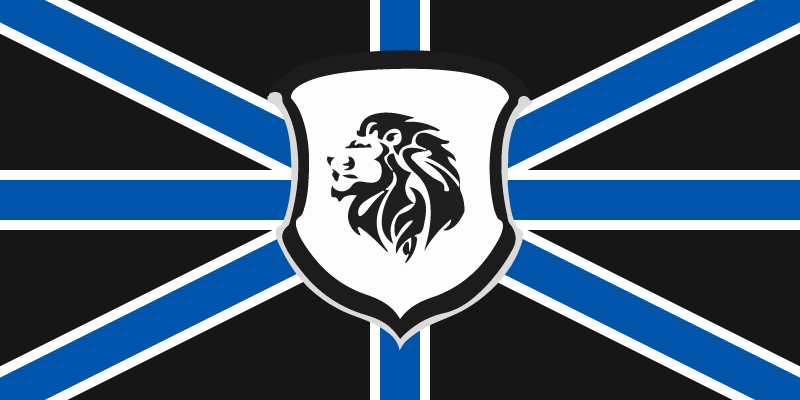10-18-2018, 11:02 PM
![[Image: g9GTz3x.png]](https://i.imgur.com/g9GTz3x.png)
![[Image: jZMqjrV.jpg]](https://i.imgur.com/jZMqjrV.jpg)
The existence of intelligence services, or secret services, within democracies always brings an element of tension. Democratic government is supposed to be accountable to its people, transparent, and not supposed to keep secrets from voters. At the same time, no democratic government can adequately protect itself from those who abuse the open nature of a democratic society for anti-democratic purposes without a secret service.
A democratic intelligence service is characterized by its lawfulness and democratic oversight. The intelligence services are not free to operate the way they see fit, such as Nerysia's Ministry of Security, they have to follow proceedures as described in the law - made by democratically elected politicians. Secondly, the intelligence services have to answer for their conduct and their use of taxpayers' money to the political leadership of the country.
Political and public oversight and intelligence work are difficult to combine. Intelligence operations are at their most effective when everything is kept secret. The moment our adversaries find out about the methods or details of operations, or the sources used, they will be in a position to adjust their own behaviour to make it more difficult for the intelligence services to do their job. Secrecy is an operational necessity for the security of the country. At the same time, it is important that the democratically elected politicians of Nyland have a way of checking and ensuring the intelligence services are operating within the law and doing what theyre supposed to do.
Another aspect to keep in mind is that proper oversight needs to protect the intelligence services themselves from politicians and from being abused for political ends, or from having their work become politicized. A clear example of how too much political influence on the work of intelligence services can actually hinder their effectiveness is the politicization of the CIA and its reports on Iraq, that went from being nuanced reports to becoming an echo chamber for Washington politicians that exerted pressure on the CIA to confirm their suspicions of existing weapons of mass destruction.
Before we continue...
Before we continue to discuss the democratic oversight on the FSD, I've made a simplified chart to explain how the FSD operates and what it mainly does. A description will be given below.
![[Image: Fh0zLfz.jpg]](https://i.imgur.com/Fh0zLfz.jpg)
The National Security Council
The FSD answers directly to the executive branch. The Minister (or secretary?) of Homeland Security is politically responsible for the Federal Security Department. Together with the National Security Council, he coordinates the intelligence needs of the Nylander executive, including those of Homeland Security, the Defence Ministry, the Foreign Ministry, other intelligence services, and the President. Based on those National Security meetings, the Homeland Security minister formulates the tasks and objectives of the FSD.
Policy and Planning
The Director of the FSD plays a key role as an advisor in the Security Council and in translating the demands of policy-makers into policy. When an objective has been determined, the Director and the FSD Cabinet hold preparatory meetings to determine how to meet the objective. The relevant section heads participate in this meetings, along with legal advisers to translate policy objectives into intelligence operation plans. When planning operations, the FSD constantly has to take into account the legality, proportionality, effectiveness and available capacity of the methods that are employed.
Collection
When an operational plan has been formulated, it needs to be approved. Sometimes, because very heavy intelligence methods are employed (such as hacking computers and phones, human infiltration, or placing recording equipment in cars or homes) the Minister (or possibly the President) needs to be informed and give explicit approval. This is because these measures mean such a heavy breach of someone's privacy, it is necessary to give ultimate responsibility to a politician, who is answerable to the public.
The FSD employs various means and methods of collecting ''intelligence''. We call it ''intelligence'' and not simply ''information'', because the difference is that intelligence has restricted access and is required for decision-making. The choice of means through which the FSD collects intelligence is largely determined by how difficult it is to access particular intelligence and the importance or necessity of obtaining it, which is in turn determined by the threat posed by the target. As soon as a target is no longer of interest to the FSD, all intelligence collection operations have to be terminated immediately.
Processing
Intelligence that has been collected is still mostly raw data. It requires processing in order to be used. The FSD employs a host of specialists with various skills to help process the data that is being collected. This can range from data analysis, translation and proper storage of intercepted communications, decryption, and proper filing of raw data. The data that has been collected may be stored for a limited amount of time, after which it has to be destroyed.
Analysis
The crucial stage is the analysis stage. The FSD's experts and analysts develop hypotheses or working assumptions and then go through the processed intelligence that has been collected, in search for relevant details, patterns, and evidence to either confirm or falsify their hypothesis. If new unknowns are discovered, this results in another phase of planning, intelligence collection and processing, until the analysts have the answers they need. More often than not, we do not have the time to repeat the cycle often enough until we have all the answers. The analysts work under time pressure to deliver their estimates, analysis and warnings in time to the policy-makers or relevant authorities.
Dissemination & Warning
The FSD's operational intelligence teams will jointly put together a report or briefing to inform policy-makers and other clients of their conclusions. The FSD's liaison officers, analysts and briefers go out to whoever needs to be made aware of the intelligence of the FSD or needs to be warned so they can be mobilized to take proper actions to reduce the threat. The FSD could, for example, send a report to the Department of Justice concerning a terrorist plot in the making that needs to be stopped. The Department of Justice can then alarm the police, arrest the suspects, and open a criminal prosecution investigation. The FSD never provides operational details about its ongoing operations to outsiders.
After this cycle, policy-makers share their feedback in meetings with the FSD Cabinet and set new intelligence objectives.
Many Roads lead to Oversight
There are differing ways in which democracies can maintain oversight on their intelligence services. Some methods are more strict, others are less so, and most countries therefore use multiple forms of oversight.
Inspector-General: Some countries, like France, have appointed a special Inspector-General for the intelligence service. His role is to be a neutral figure who stands in between the political leadership (such as a Minister) and the directors of the service. His primary role is to shield the service from political influence and abuse. He represents the staff, and is allowed to advise politicians and policy-makers.
Parliamentary/Legislative oversight: Virtually all democratic countries have a form of parliamentary or legislative oversight on the intelligence services. At the same time, the tension between secrecy and transparency is the greatest here. Lawmakers do not have security clearances, may simply quit their jobs, lack knowledge and understanding of intelligence work, or may accidentally leak classified information. In history there are many cases of legislators working for foreign intelligence services. In order to counter that risk, most countries have formed special ''intelligence committees'' or commision's, composed of a select group of expert legislators who have sworn secrecy and convene in secret behind closed doors. Within these select, secretive parliamentary gatherings, intelligence chiefs can update the legislators on important developments and answer some of their questions. The Catch 22 is that these legislators become part of the secret, theyre not allowed to share anything they hear with the public.
Independent Oversight Bodies: In order to broaden the oversight beyond a select few legislators with limited knowledge, some countries have established additional independent oversight bodies. These include countries such as the Netherlands, Germany, France, Sweden and Denmark. These usually consist of a council of appointed experts who frequently meet with the intelligence chiefs behind closed doors. The oversight body is composed of permanent experts, that are allowed to inspect any and every closed case. It looks as to whether the law was properly applied, proceedures were properly followed etc etc. It has the ability to speak to intelligence officers as well. It can also investigate complaints from civilians. Its findings and recommendations are published in reports. They are not allowed to publish classified information, which they can only use in classified reports for limited eyes. General criticisms or recommendations can be published however, and could be used for public discussion.
Legal Oversight: This is a tradition more often seen in Anglo-Saxon countries such as the UK, but also in the Netherlands, Belgium, Sweden, Germany and Italy. Legal oversight remains difficult and weak in most countries however for a specific reason. The task of intelligence services is to conduct investigations into potential or suspected threats against national security. What exactly constitutes a threat and what ''national security'' exactly means, are ultimately political questions - not legal. Especially because the responsible political executive's head will be on the block if things do go wrong, it is generally his sole responsibility for determining what is or isn't a threat against national security. On top of that, in most countries intelligence services are reluctant to share the operational details of highly vulnerable and extremely costly operations with court justices who haven't had a security clearance. Often legal courts may apply oversight after complaints have been made about the conduct of an intelligence service. In some countries, legal courts have to provide a legal warrant for the use of intelligence collection methods, but this usually still happens without sharing any classified information with the court. In the Netherlands, the legal court can be asked to give a verdict on the conduct of the intelligence service, as happened when a newspaper filed a lawsuit against the Dutch security service for eavesdropping journalists.
Ombudsman: In Europe, many countries have a so-called ''Ombudsman'', which is an independent instutition that exists to deal with complaints by citizens about their treatment by the government. Such an institution may highlight abuses or problems, but has no access to any classified information.
The question remains, how do we want to arrange oversight in Nyland?
 Eternity RPC Board
Eternity RPC Board











